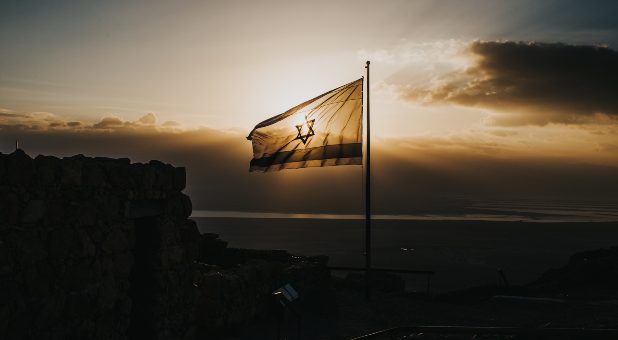In November, Secretary of State Mike Pompeo publicly declared Israel’s settlements in Judea and Samaria to be legal.
This policy shift is not just an important political move. It also reflects a long-awaited recognition that the Jewish people are, biblically and historically, the rightful settlers of these lands. This truth is one of the reasons why Christians in the U.S. and around the world stand so firmly in their support of Israel, whose land was the cradle of both Judaism and Christianity.
Today, almost 400,000 Israelis are living in Judea and Samaria. While some have accused them of being colonists, their presence is not only biblically lawful, but they have roots that trace back thousands of years.
The Bible, from its very beginning, identifies these lands as belonging to the Jewish people. In Genesis, God tells Abraham, “Go, walk through the length and breadth of the land, for I am giving it to you.” Abraham built an altar to God “near the great trees of Mamre at Hebron,” in Judea. Hebron is the oldest Jewish community in the world, and the city where King David was anointed king. Abraham, Isaac, Jacob and other foundational figures from the Old Testament were buried there, making the very earth itself of priceless significance to the Jewish people.
God also appeared to Abraham in Shechem, which today is the city Nablus in Samaria, and declared, “To your descendants I will give this land” (Gen. 12:7). The Bible also says that God affirmed, “The land that I gave to Abraham… I will give… to your descendants after you” (Gen. 35:12).
Both King David and Jesus were born in Judea, in Bethlehem, forever linking the Jewish and Christian faiths. Many scholars believe John the Baptist baptized Jesus in Samaria, and Jesus’ teachings in both the Judean and Samarian regions are central to the New Testament.
Americans of faith recognize not only the biblical and historical ownership of these settlements, but also Israel’s long struggle to maintain free and open access to the regions’ holy sites. In 1948, when the State of Israel was established, Syria, Jordan, Egypt and Lebanon attacked the new nation. They reached a peace agreement in 1949 that allowed Jordan to occupy East Jerusalem, Judea and Samaria, and allowed Egypt to occupy the Gaza Strip, but an official border was never actually established. Because of this, after years of desecration and devastation of many Jewish holy sites in these regions, Israel reclaimed the lands in 1967.
Are Judea and Samaria of valuable strategic and political importance to Israel, as many have argued? Yes. But are they also of invaluable religious importance, with a legacy supported by the Bible? Absolutely.
For decades, rightful ownership of the region has been hotly disputed. It shouldn’t be. Few Americans dispute Native Americans’ rightful ownership of tribal lands in the U.S., and the U.S. government has since paid tribes billions of dollars in restitution. Similarly, the historical evidence of a millennia-long Jewish presence in Judea and Samaria is irrefutable.
The Christian community in the U.S. has a long history of solidarity with the people of Israel, and the Trump administration has acted nobly in support of Israel, by moving the U.S. Embassy in Israel from Tel Aviv to Jerusalem; recognizing Israeli sovereignty over the Golan Heights; and standing against the Iranian Revolutionary Guard Corps.
It is essential that Americans of faith stand behind our government in their support of Israel. Not only is Israel the only true democracy in the Middle East and an important American ally, but our two countries have a strong religious bond that transcends politics. Protecting Israel’s rightful ownership of Samaria and Judea will help ensure that precious historical and religious sites are preserved for future generations of all faiths. {eoa}
Timothy Head is executive director for the Faith & Freedom Coalition.





